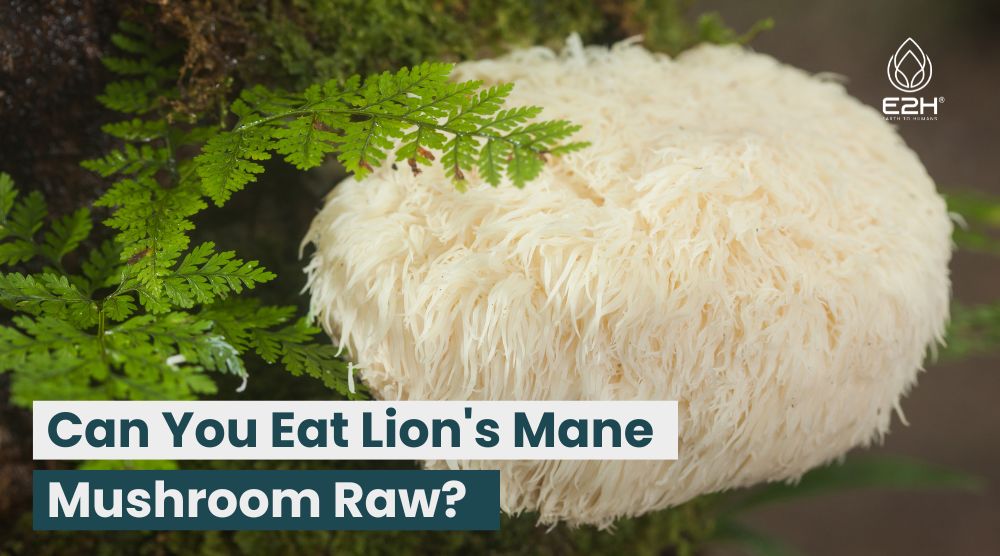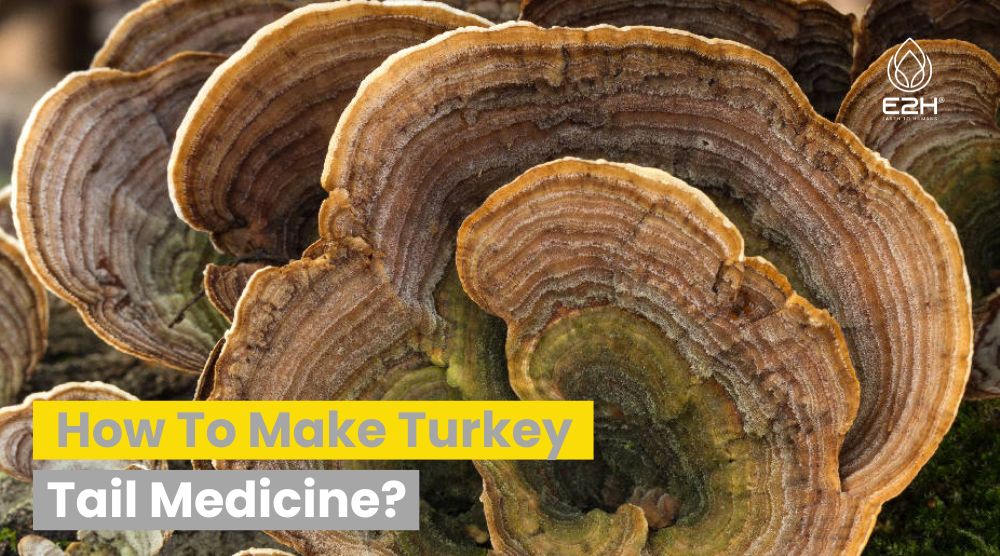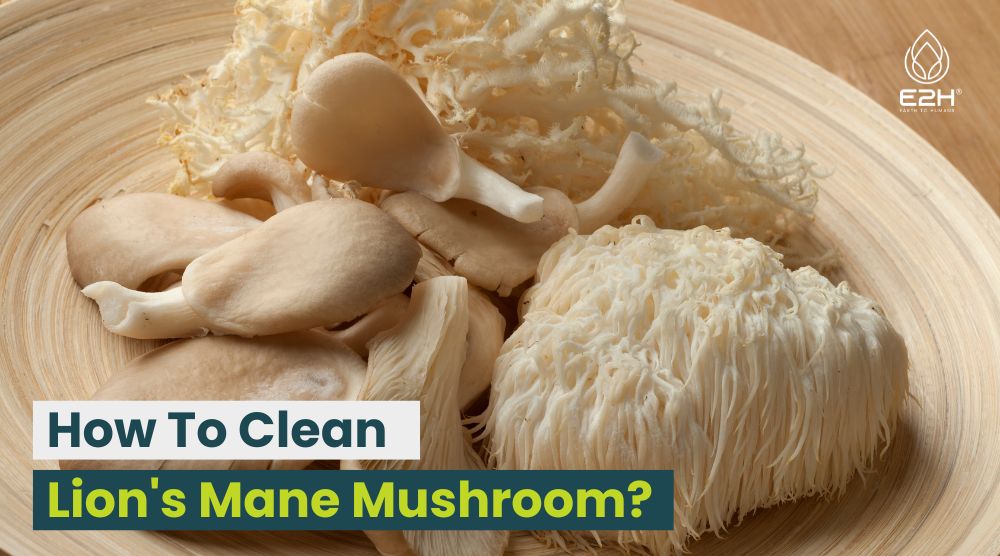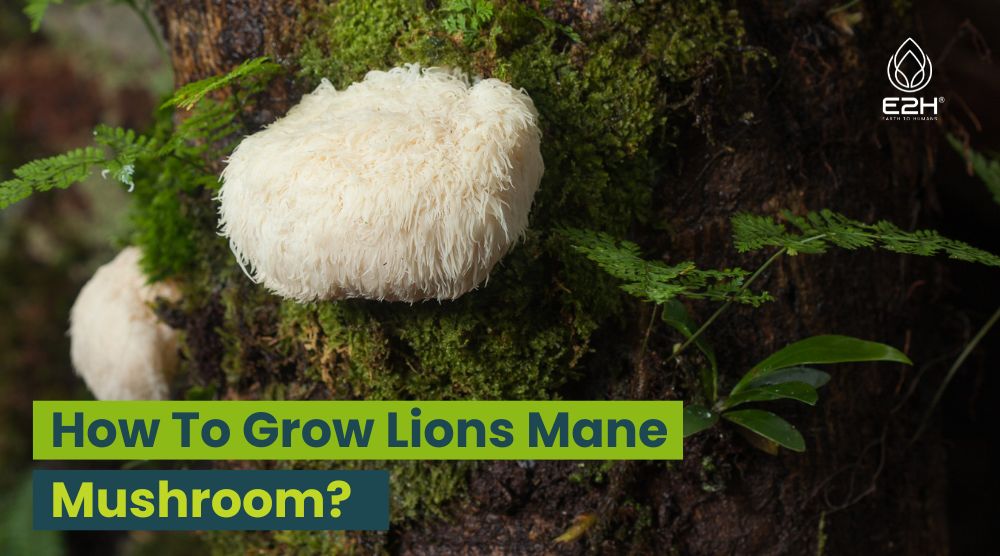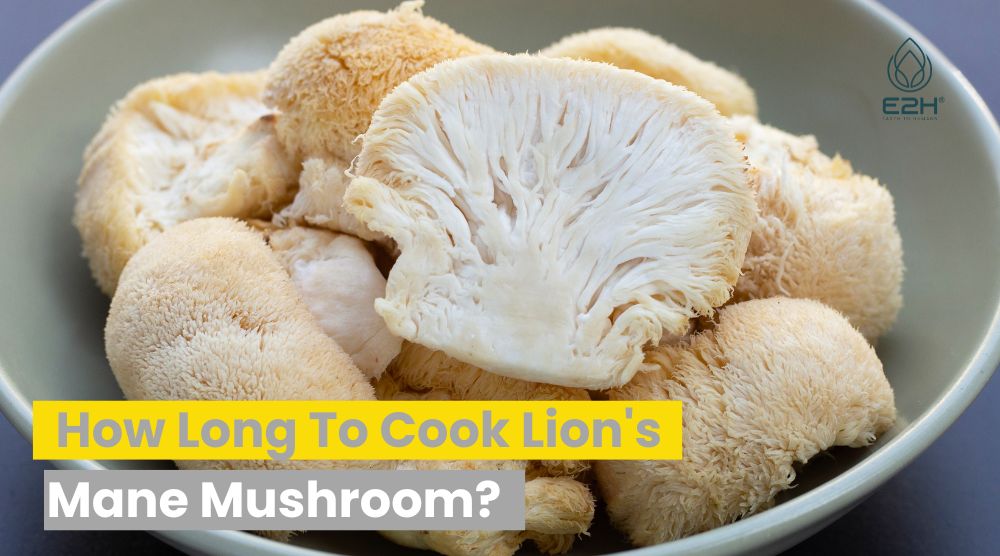Can You Eat Lion’s Mane Mushroom Raw: Yes, you can eat lion’s mane mushroom raw. However, its unique texture and taste may not appeal to everyone, and some people may experience mild digestive discomfort.
Understanding Lion’s Mane Mushroom
Before diving into its raw consumption, let’s get to know the lion’s mane mushroom better. This edible mushroom is native to North America, Europe, and Asia, and it has been a part of traditional Chinese medicine for centuries. Its medicinal properties have sparked interest in medicinal mushrooms in the scientific community, leading to several studies exploring its potential benefits.
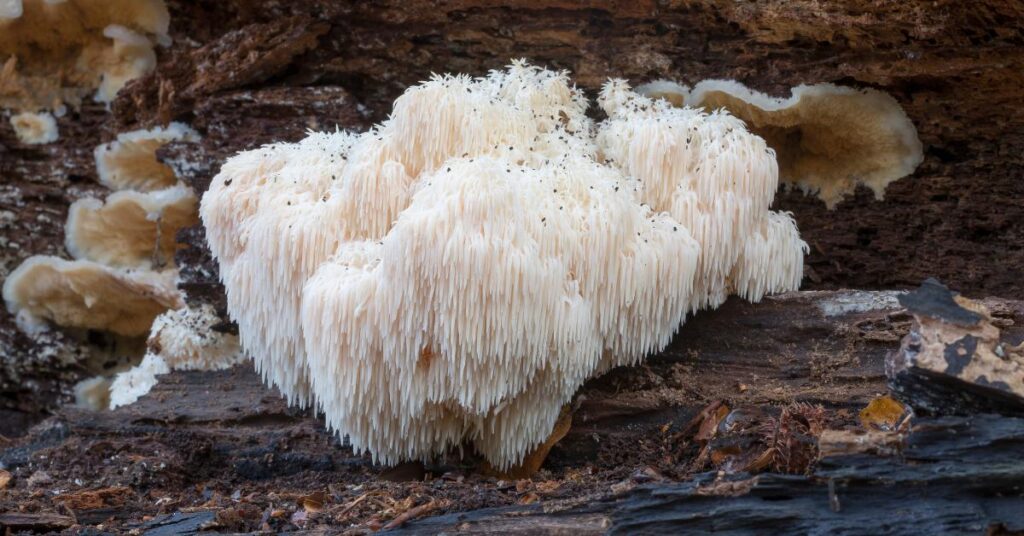
In the kitchen, lion’s mane mushroom is appreciated for its delicate flavor, often described as seafood crab meat-like, with a subtle hint of sweetness. It can add a unique touch to various dishes, making it a favorite among chefs and food enthusiasts.
Nutritional Value of Lion’s Mane Mushroom
Lion’s mane mushroom is not only delicious but also packed with essential nutrients. It contains various vitamins, including B vitamins (such as B1, B2, B3, B5, B6, and B12), as well as minerals like potassium, zinc, iron, and selenium. Additionally, it is a good source of dietary fiber and protein, making it a valuable addition to any diet.
Raw Consumption of Lion’s Mane Mushroom
Now, let’s address the central question: Is it safe to eat lion’s mane mushroom raw? While lion’s mane mushroom is generally safe for consumption, eating it raw may not be suitable for everyone. The mushroom or lion’s mane extract, unique texture and taste might not appeal to all palates. Moreover, some people might experience digestive discomfort when organic lion’s mane mushrooms after consuming it raw due to its fibrous nature.
However, there are potential benefits to eating lion’s mane mushroom in its raw form. Cooking can sometimes reduce the nutrient content of certain foods, and consuming this mushroom raw might help retain its full nutritional value. The active compounds, such as hericenones and erinacines, believed to promote nerve growth and brain health, may be more potent when the mushroom is consumed raw.
Cook Lion’s Mane Mushrooms
For those who find the raw texture unappealing or prefer a different flavor profile, cooking lion’s mane mushroom is a delightful alternative. Cooking this delicious mushroom up is simple and opens up a world of culinary possibilities. Sautéing it in olive oil with garlic and herbs, adding it to stir-fries, or using it as a meat substitute in vegetarian dishes are just a few ways to enjoy this culinary gem.
When cooking lion’s mane mushroom, it’s crucial to handle it with care. Gently clean the mushroom with a damp cloth or brush to remove any dirt. Avoid soaking it in water, as cook lion’s mane mushrooms are like sponges and can become waterlogged, affecting their texture and taste.
Tips for Preparing Lion’s Mane Mushroom
Preparing lion’s mane mushroom is a straightforward process. First, remove any debris by lightly brushing the surface. Next, slice the lion’s mane mushroom powder into smaller pieces or strips, depending on your recipe. Keep in mind that the taste and texture may vary depending on the size and thickness of the slices.
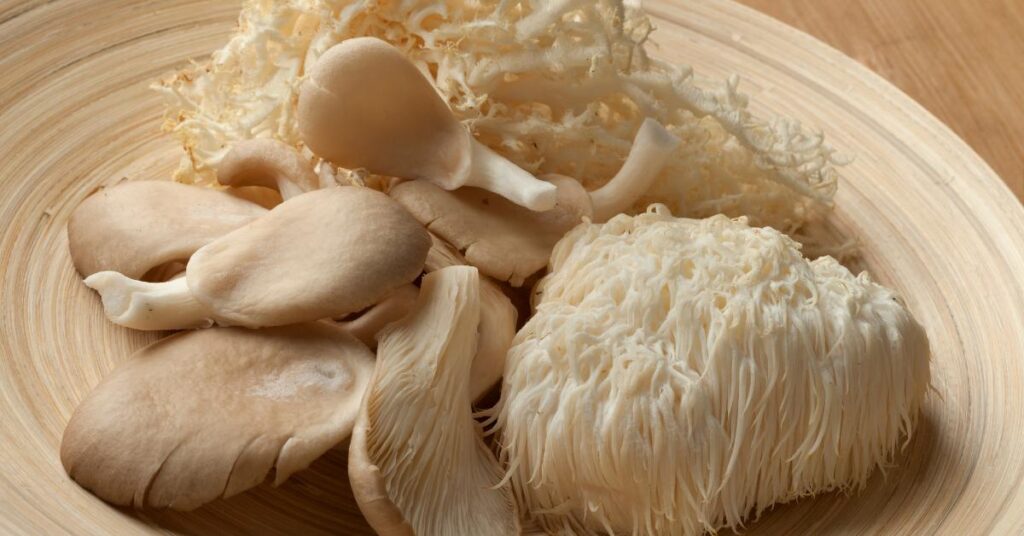
If you are using wild-harvested lion’s mane mushroom, ensure it is from a reputable source or an experienced forager, as misidentification of dried lion’s mane mushrooms can be dangerous.
Culinary Uses of Lion’s Mane Mushroom
The versatility of lion’s mane mushroom allows it to be used in various dishes. Its seafood-like taste pairs excellently with pasta dishes, risottos, and soups, adding a unique umami flavor. For those following a plant-based diet, it can be a satisfying alternative to meat when cooked and seasoned appropriately.
Expert Opinions and Studies
Experts in the field have varying opinions on consuming lion’s mane mushroom raw. Some argue that eating it raw preserves its nutrients and active compounds, while others suggest cooking to improve digestibility and eliminate any potential contaminants.
Scientific studies regarding the effects of consuming lion’s mane mushroom raw are still limited. More research is needed to fully the edible fungi of lion’s mane extracts and understand its impact on health and potential risks.
Safety Precautions
While lion’s mane mushroom is generally safe, there are some precautions to consider. Some individuals might be allergic to certain types of mushrooms, including lion’s mane mushrooms. Additionally, people with underlying health conditions or compromised immune systems should exercise caution and consult their healthcare provider before incorporating new foods into their diet.
Other Forms of Lion’s Mane Mushroom
For those who prefer not to consume the whole lions mane mushroom raw, there are alternative ways to enjoy its potential health benefits. Lion’s mane mushroom is available in various forms, such as capsules, powders, and extracts. These products offer a convenient option for those seeking to include this mushroom in their daily routine without the need for culinary preparation.
Comparing Raw vs. Cooked Lion’s Mane Mushroom
Both the eat lions mane raw, and cooked lion’s mane mushroom have their merits. While consuming it raw might retain more nutrients and active compounds, cooking can enhance its flavors and make it more palatable for some individuals. Ultimately, the choice between eating raw lion’s mane, and cooked consumption depends on personal preferences and dietary considerations.
Personal Experiences
Many individuals have shared their experiences with lion’s mane mushroom, both raw and cooked. Some report enjoying its unique taste and texture when consumed raw, while others prefer the savory and satisfying flavors that cooking their lion’s mane recipes brings out. Personal experiences eat lion’s mane raw can vary, so it’s essential to explore different preparation methods to find what suits your taste buds best.
Is Lion’s Mane Better Cooked or Raw?
The culinary preference for lion’s mane mushroom varies among individuals. Some prefer it cooked, as cooking enhances its flavors, making it more palatable and versatile in various dishes. On the other hand, consuming it raw may preserve more nutrients and active compounds. However, raw lion’s mane mushrooms can have a distinct texture that may not suit everyone’s palate. Ultimately, the choice between cooked and raw mushrooms consumption depends on personal taste and desired health benefits.
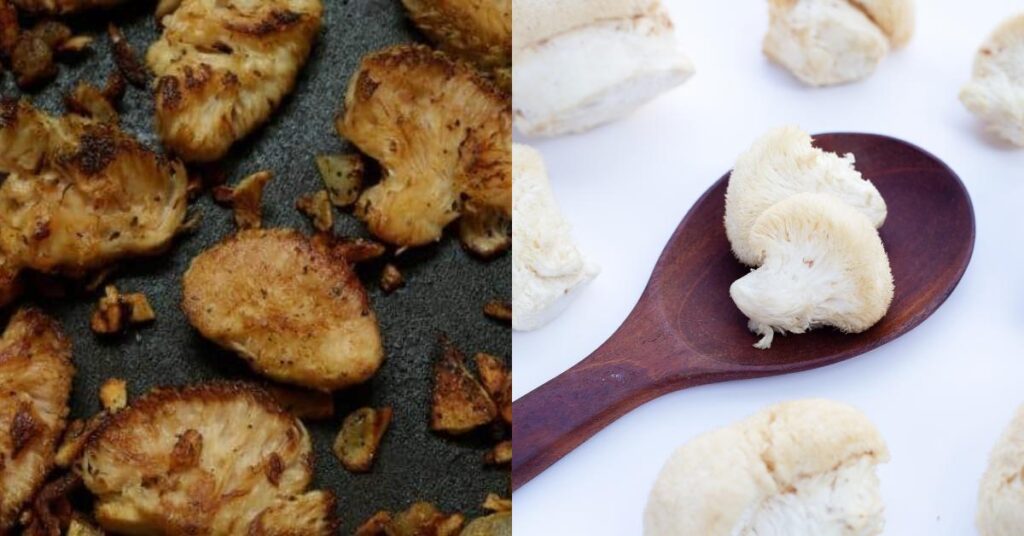
How Should You Eat Lion’s Mane?
To enjoy fresh lion’s mane mushroom, it is recommended to cook it using various methods. Sautéing it in olive oil with garlic and herbs can bring out its seafood-like flavor, perfect for pasta dishes and risottos. Incorporate it into stir-fries or use it as a meat substitute in vegetarian meals for a delightful umami taste. Ensure proper cleaning before cooking, as mushrooms absorb water and can affect their taste and texture. Remember, the best way to eat fresh lion’s mane mushrooms is the one that suits your palate and dietary preferences.
Can I Eat a Whole Lion’s Mane Mushrooms?
While it is technically possible to eat a whole lion’s mane mushroom, it is not commonly done due to its fibrous nature and size. The mushroom fresh lion’s mane and large, cascading spines make it challenging to consume in one sitting. It is typically sliced or chopped before cooking to ensure even cooking and a pleasant eating experience. Moreover, depending on the dish’s recipe and serving size, you might not need to consume a whole lion’s mane mushroom taste all in one meal.
What Does Lion’s Mane Taste Like Raw?
When eaten raw, lion’s mane mushroom has a unique taste and texture. Its flavor is often described as delicate and seafood-like, with a subtle sweetness. The texture can be slightly crunchy and fibrous, providing an interesting mouthfeel. Some individuals enjoy the raw experience, appreciating the mushroom and lion’s mane powder, natural essence and potential health benefits. However, others may find the raw texture less appealing and prefer the enhanced flavors that cooking lion’s mane mushrooms brings out. Ultimately, tasting lion’s mane raw is a personal choice that may vary based on individual preferences.
FAQs
Can I eat lion’s mane mushroom straight from the forest?
It is not advisable to eat raw, wild-harvested lion’s mane mushroom unless you are an experienced forager. Misidentification of benefits of lion’s mane mushrooms can be dangerous.
Are there any side effects of consuming lion’s mane mushroom raw?
Some individuals may experience mild digestive discomfort due to the mushroom’s fibrous nature. Allergic reactions are also possible in rare cases.
Is lion’s mane mushroom suitable for vegetarians and vegans?
Yes, lion’s mane mushroom is a great meat substitute in vegetarian and vegan dishes due to its seafood-like taste and texture.
Can I find lion’s mane mushroom supplements in stores?
Yes, lion’s mane mushroom supplements, extracts, and powders are available in health stores and online.
Can children safely consume lion’s mane medicinal mushroom?
It is recommended to introduce new foods gradually to children and monitor for any adverse reactions. Consult with a pediatrician if needed.
Conclusion
In conclusion, consuming lion’s mane mushroom raw is generally safe, but it may not be appealing to everyone due to its texture and taste. For those who appreciate its potential health benefits and prefer a more intense flavor, raw consumption of fresh mushrooms might be worth considering. However, cooking lion’s mane mushroom offers a wide range of culinary possibilities and can make it more accessible and enjoyable for many. Whether you choose to eat fresh mushroom be it raw or cooked, lion’s mane mushroom is a fascinating addition to your diet, providing an array of nutrients and potential health advantages.
Take a tour: E2H
